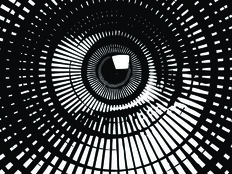Protecting Agency Communication Infrastructure
Communication infrastructure includes the cell towers and networks that allow phones, GPS technologies and other devices to connect. Government and technology organizations work to protect that infrastructure through encryption and other security measures.
As we’ve become more dependent on mobile technology, concerns about its security have understandably grown. Defending a network of computers that are connected by Ethernet cables is itself quite challenging, but adding wireless communication signals makes that network even harder to defend.
That is especially true if the security system doesn’t monitor the interactions between signals from your device and the physical environment. Imagine you have a security camera in front of your home. You go on vacation, but leave the unmonitored back door unlocked, vulnerable to a would-be thief.
In my lab, we measure signals at not just at one point, but at multiple points as they move through the local communication infrastructure. That provides a better view of what’s happening overall. Just as my son saw meaning in a painting where I couldn’t, we need to be able to see the whole picture to defend our networks.
Our cybersecurity project, Device-level Anomaly fRamEwork (DARE), looks at the signals that radiate out from our devices using a commercial-grade telecommunication network, known as a radio access network. A local RAN connects devices such as smartphones to the cloud.
We use this network to measure the behavior of signals under the effects of different cybersecurity scenarios, trying to capture unusual activities that may indicate compromise. If we see something in one place that’s concerning, we know we need to investigate for a possible vulnerability.
LEARN MORE: 5G networks provide extra security unique to your agency’s needs.
Multidisciplinary Viewpoints Uncover More Cybersecurity Solutions
Our multidisciplinary team brings many perspectives to this work. Experts from advanced wireless communications, cybersecurity and applied mathematics, including machine learning, work together to help wireless providers and others create networks that are more secure for all of us.
For the project to succeed, we must bring our whole selves — including our unique life experiences — to solve significant scientific challenges by looking at these problems from every angle.
Just as my team needs diverse talents and perspectives to do our best work, it’s been shown that diverse groups of scientists publish more frequently and are likely to develop solutions that benefit more communities. This country relies heavily on the innovative work that scientists do, and we need those scientists to represent every part of our society.






.png)



